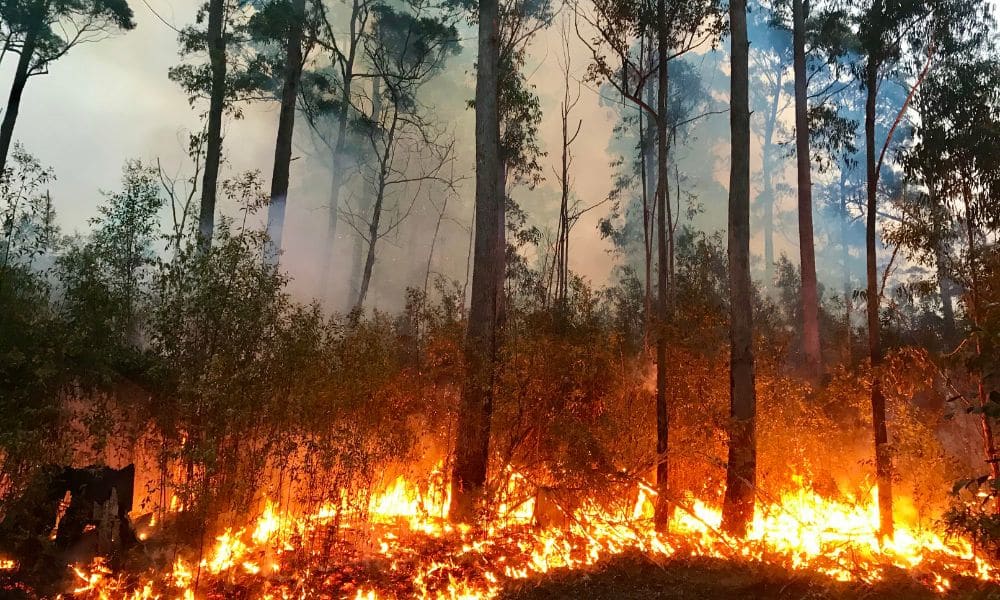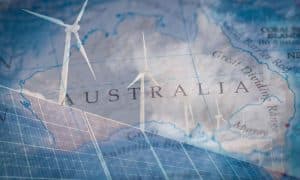Summer is knocking at the door, and the coming change of season is looking to be riddled with bushfires. We are now in the phase of El Niño, the weather event that can bring with it flooding rains and extreme drought. Eastern Australia has benefitted from a very wet winter and spring in 2023, on the tail of consecutive La Niña events, but this rain brings substantial growth that serves as fuel for bushfires. As the summer sun beats down and dries out vegetation, QLD, NSW and VIC will be primed for bushfire season.
With the threat of bushfires having a devastating effect on our climate, ecosystem, and urban areas, there’s an often overlooked and detrimental additional impact. Widespread blackouts are a common result of bushfires impacting energy infrastructure. Reducing your reliance on the grid is now more important than ever.
Why does the power go out during bushfires?
The 2020 bushfires will long be seared into the memories of those who survived it and lived through the torturous weeks. Tens of thousands of Australians were thrust into darkness when the power grid failed. Not only did this cause mass panic and confusion but it brought with it an array of life-threatening issues. For many, it meant that vital information about the fires and the well-being of their loved ones was not easily attainable. For others, access to water was limited as their electric water pumps could not work.
Bushfires wreak havoc on above-ground power lines. They can obliterate power stations and destroy supply lines to areas not affected directly by the fires. This is why there has been a major drive for fire-prone areas to move their power lines to below ground.
How solar and batteries can make a difference
It is well known that solar ceases to work when the grid goes down. For the safety of linespeople who may be working on the power grid, electricity output is shut off. However, homes with battery storage can keep the lights on when the rest of the street goes dark.
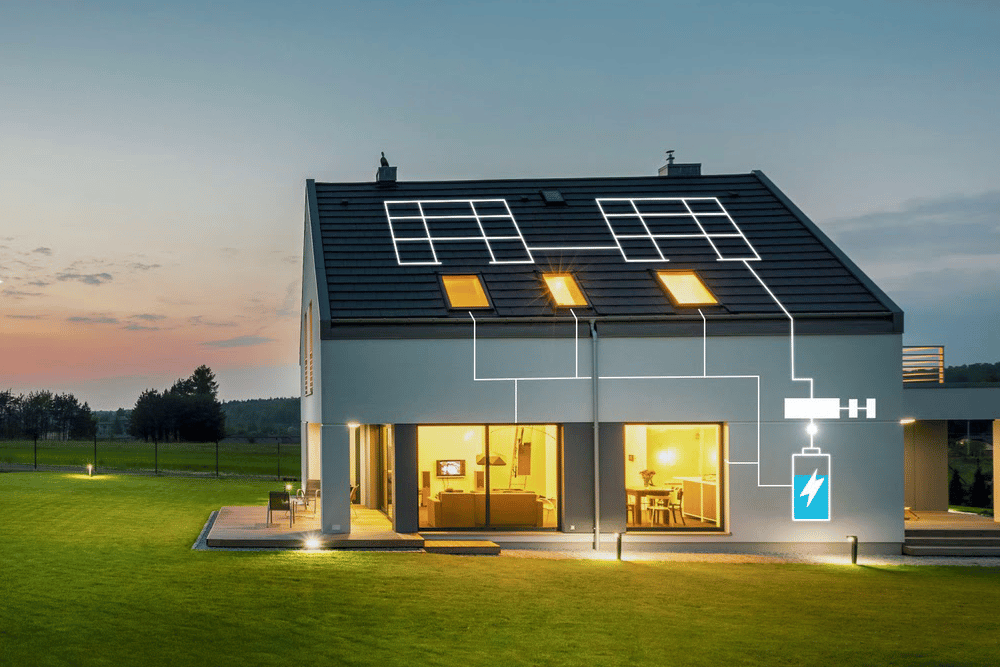
A solar system with battery storage can produce electricity even when the grid goes down. Your panels will generate electricity during daylight hours for use during the day and at night. How much electricity you will be able to use, and for how long, will be determined by the battery size as well as the make and model. But, when the sun shines again, your battery will begin to replenish. You will be able to run the essentials for the blackout period.
Will smoke from bushfires impact my solar panels?
Just as heavy cloud cover reduces the efficiency and output of your solar panels, smoke cover from bushfires will impact electricity generation.
For those who remember the 2009 and 2020 bushfire seasons, you’ll no doubt recall the colour of the sky. Those nearest to the fires experienced an almost nighttime blackout of the sky. For others, the thick smoke turned the sky red. If no sunlight can get through, then your solar panels will be unlikely to generate any electricity. Thick smoke cover with reduced sunlight will mean that your panels will produce less electricity than usual.
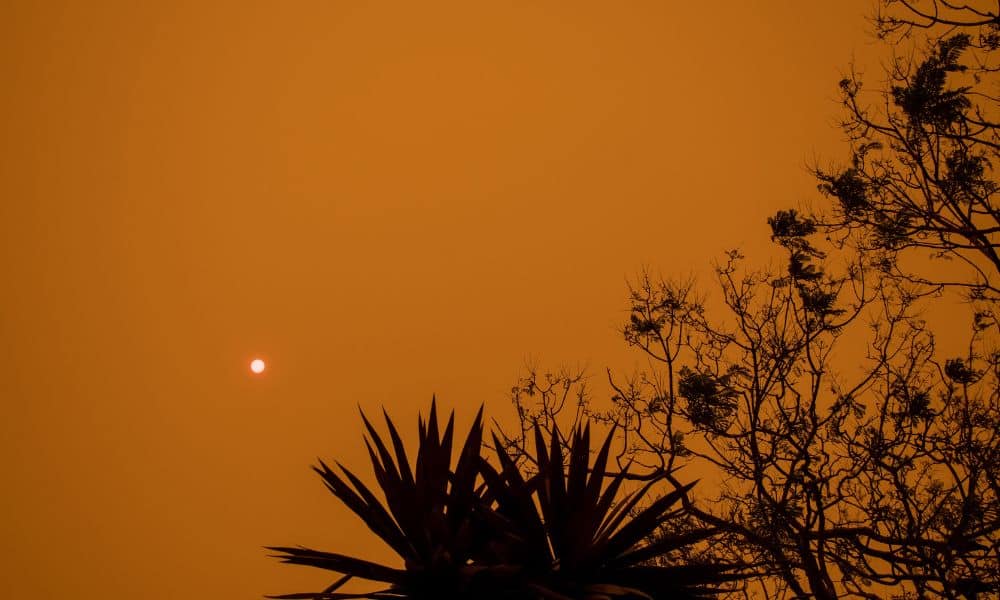
Ash can also serve to cover your panels and further reduce their operation. During such an event, we recommend clearing the ash from your panels with water from a garden hose where possible (from the safety of the ground). As your panels are coated in glass, we recommend waiting to wash them in the very early morning or just as the sun is setting to avoid sudden temperature changes that may damage your panels.
Much like cloud cover, smoke coverage is rarely consistent. You may experience days of heavily reduced solar production, though the risk of this is lessened the further you are from the fires.
Are solar batteries safe during bushfire season?
This question is definitely a hot topic and needs to be broken down into two categories: Homes that are directly impacted by a bushfire and homes that are indirectly impacted.
Solar battery homes: Directly impacted by bushfires
In the very unfortunate event that your home is directly impacted by a bushfire, there are a few things to consider if you have solar battery storage.
- Turn off your solar panel and battery system if your home is under threat and it is safe to do so.
- Inverter: Switch off the inverter at either the main switchboard OR via the AC isolator switch that is usually located near the inverter. You will then need to turn off the DC isolator switch which should also be located near the inverter. The instructions are usually found on the inverter unit.
- Battery: Every battery is different, so you will need to follow the manufacturer’s instructions on how to safely shut down your battery. Instructions are usually located on the battery. If you do not require power to your house, we recommend turning all the power off at your main switchboard.
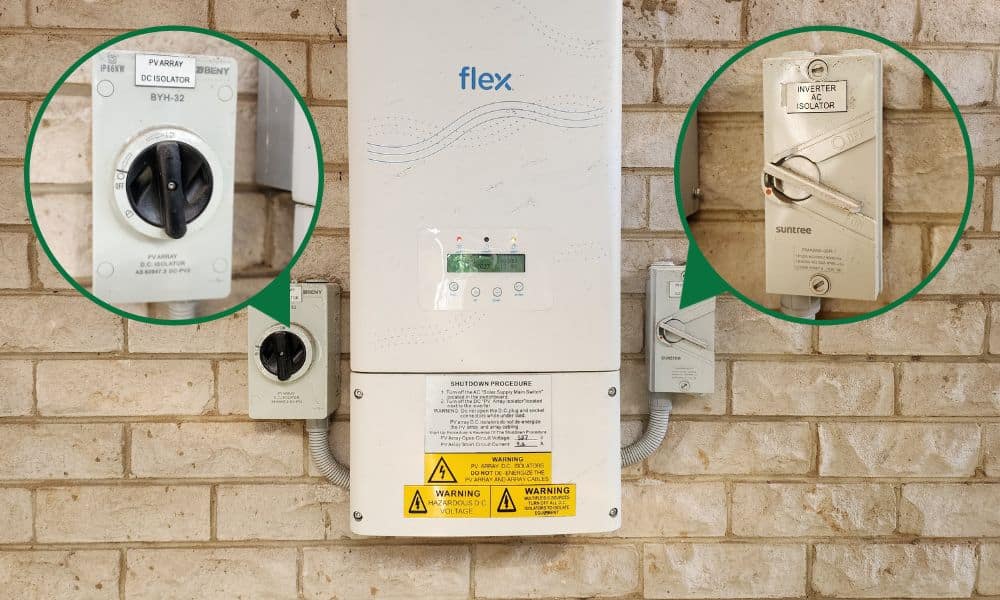
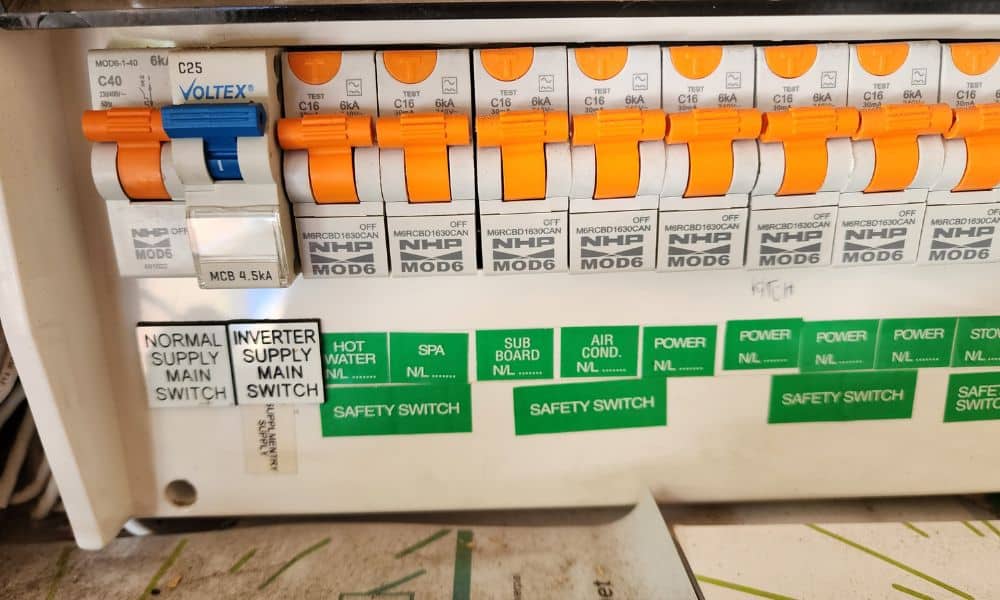
- If your home has fire damage, do not turn your system back on. Your home must first be assessed for electrical safety by a licenced electrician.
- If your home is on fire, evacuate immediately – even if your solar and battery system has not been shut off.
Solar battery homes: Not directly impacted by bushfires
Your solar and battery system will be able to operate as usual and safely. There are things to consider before installing solar battery storage:
- Install the battery in a well-shaded and ventilated area. Reducing direct sunlight exposure will minimise the risk of overheating. Many batteries are able to be installed indoors – discuss this option with your solar battery installer.
- Select a battery that has blackout protection. We recommend batteries from the following manufacturers:
- Get to know and understand your battery, including what to do in case of an emergency.
As the mercury rises, your solar panels will become less efficient. You should expect lower output during the peak of the day. You can read more about how high temperatures impact solar panel production here.
The time to invest in solar and battery storage is NOW
Take advantage of government rebates and incentives now and begin reaping the rewards of solar and battery storage. Not only will you be equipped to face summer head-on, but you’ll save on your electricity bills throughout the year. Electrification is the next step for Australians and solar is one of the best ways you can take control of your energy future.
Energy Matters works with hundreds of installers around Australia to bring you FREE solar quotes. You can get quotes for solar, batteries, heat pumps, LED lights, and more. Make the change TODAY!














